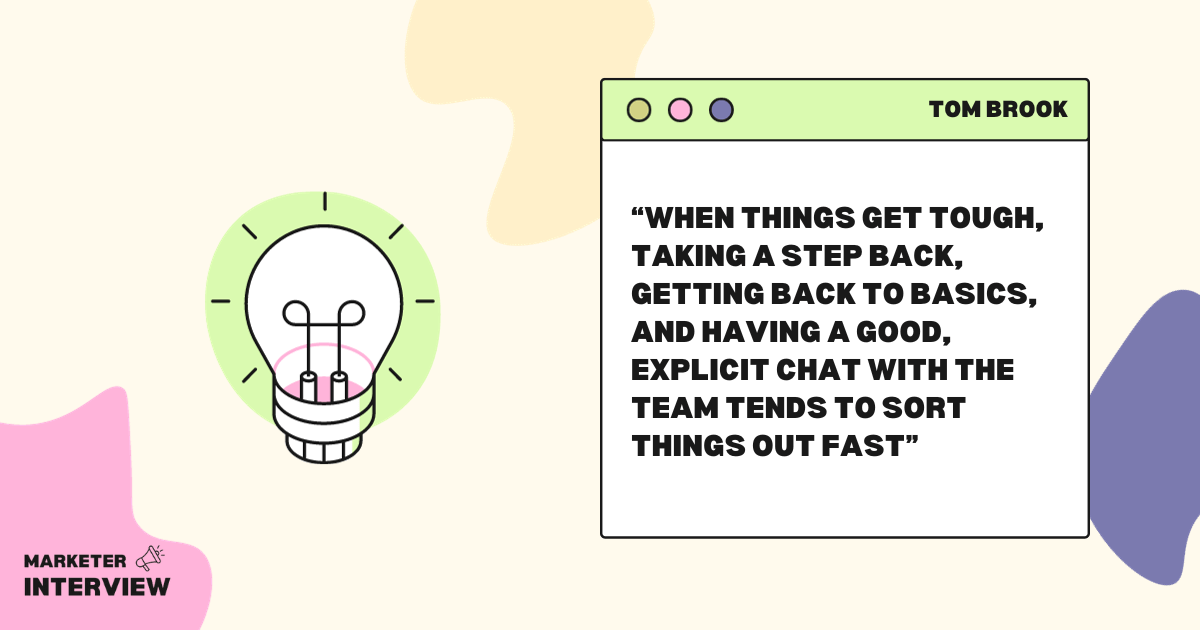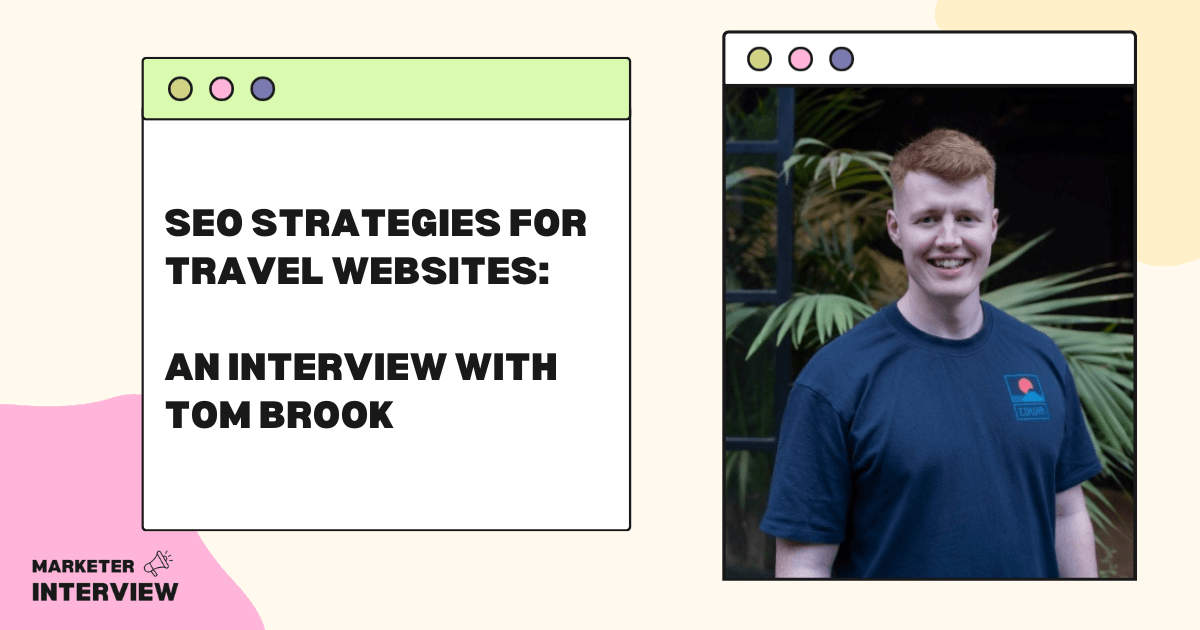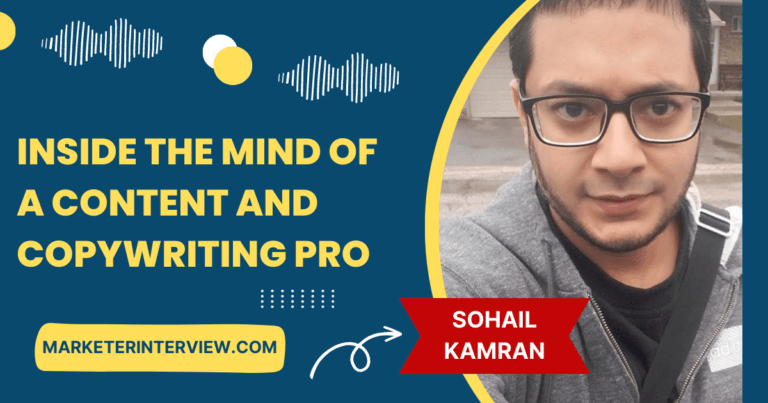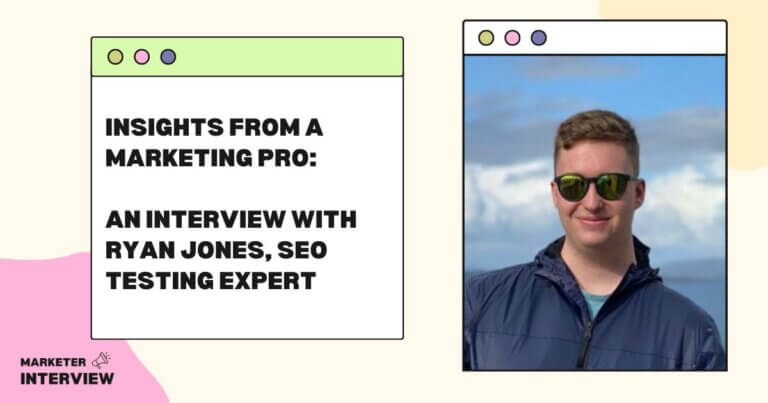SEO Strategies for Travel Websites: An Interview with Tom Brook
Welcome to Marketer Interview, your go-to source for insights from the marketing world.
Today, we have a special guest with a fascinating journey to share. Tom Brook, Senior SEO Specialist at Intrepid Travel, joins us to discuss the captivating realm of SEO for travel websites.
With a background as a former Police Detective and a remarkable track record in the digital marketing space, Tom brings a unique perspective to the world of SEO. We’re excited to explore his expertise and experiences in optimizing travel websites for success.
Contents
- 1 Can you share how you transitioned from being a Police Detective to becoming a Senior SEO Specialist at Intrepid Travel?
- 2 What inspired your career shift into digital marketing and, more specifically, SEO for travel websites?
- 3 Intrepid Travel is known for its commitment to sustainable travel. How does SEO contribute to achieving this mission, and what role do you play in it?
- 4 You’ve mentioned significant achievements, such as growing a personal website from 0 to 20k monthly users. Could you share the key strategies you employed to achieve such remarkable growth?
- 5 Travel is a highly competitive industry. What are some unique SEO challenges you face, and how do you overcome them?
- 6 As a Senior SEO Specialist, what are the primary responsibilities and critical focus areas in your role at Intrepid Travel?
- 7 SEO strategies evolve continuously. How do you stay updated with the latest trends and changes in search engine algorithms?
- 8 Could you walk us through the essential tools and software you use in your day-to-day work to optimize travel websites for search engines?
- 9 In travel, user-generated content and reviews play a significant role. How does SEO align with harnessing this content for better search visibility?
- 10 Can you share a case study or success story where your SEO strategies had a profound impact on a travel website’s performance?
- 11 What advice would you offer aspiring SEO specialists looking to carve a niche in the travel industry, especially for businesses committed to sustainable travel like Intrepid Travel?
Websites and digital marketing have always intrigued me, but I needed more time to get into it.
However, the pandemic changed everything. Suddenly, I had a lot more free time after work, and I knew I had to make the most of it.
I started creating websites, but I was terrible at designing them! That’s when I discovered SEO and became obsessed. Every minute after work, I was glued to my laptop, reading articles, watching videos, and practicing SEO. It didn’t feel like work at all – I loved it!
At that time, I was moving from Scotland to England and had to transfer to a different Police force. The transfer process took longer than expected, and I knew I wanted to get into digital marketing. So, I took a leap of faith and applied to Intrepid Travel. Since then, I’ve never looked back, and I’m glad I made the right choice.
What inspired your career shift into digital marketing and, more specifically, SEO for travel websites?
From a young age, I’ve had an interest in digital marketing. Witnessing its power and the speed at which it evolves has always fascinated me. Another huge passion of mine is travel. I’m addicted to exploring new places, trying new foods, immersing myself in different cultures, and meeting new people.
Having spent several years abroad and visited over 30 countries, including meeting my wife while skiing in Canada and spending a year in Australia with her, I’ve developed a deep love for travel. Combining my two passions of digital marketing and travel is a no-brainer for me, making my work all the more enjoyable.

Intrepid Travel is known for its commitment to sustainable travel. How does SEO contribute to achieving this mission, and what role do you play in it?
Intrepid Travel is the world’s largest travel B Corp, and our mission is not only to be the best travel company in the world but the best travel company for the world. We are a purpose-led travel brand on a mission to create a positive impact through the joy of travel.
We hire local guides, visit local communities, use renewable energy when we can, and offset carbon emissions. Intrepid does more than just travel; they also run the Intrepid Foundation, a not-for-profit organization that works with local communities to give back.
With every multi-day booking, a portion goes to the Intrepid Foundation, which handles all the admin costs, too. This means if you donate extra, every penny of your contribution directly supports local partners.
SEO helps massively with both bookings and the Intrepid Foundation. We bring more customers to our website, which leads to more bookings for our tours and more donations to the foundation.
While working at Intrepid Travel and as a freelancer, I have achieved some great results that I am proud of.
While they are my main focus, I also enjoy working on personal projects during my free time; this is where I can experiment and learn new SEO strategies. I don’t have a large budget for these personal projects, so I focus purely on SEO, and keyword research has been the most critical strategy.
Targeting low or even zero-volume keywords has been crucial in growing these sites quickly. I look to see where topics haven’t been covered well and write great content. These pages typically rank quickly and very well.
Travel is a highly competitive industry. What are some unique SEO challenges you face, and how do you overcome them?
With such a competitive industry, we’ve chosen to specialize in quality content that builds out our unique topic clusters. This strategy is two-fold, as we’re meeting our users’ needs and becoming a pillar of helpful travel content. It helps that we have some of the best copywriters in the business.
But as you mentioned, this industry is competitive, so we’ve brought in other teams around the business whose work compliments our SEO strategy. This includes a strong PR team that secures hundreds of high DA links monthly.
As a global company with a substantial international website, we’ve got our fair share of challenges. But you know what? When things get tough, taking a step back, getting back to basics, and having a good, explicit chat with the team tends to sort things out fast.

As a Senior SEO Specialist, what are the primary responsibilities and critical focus areas in your role at Intrepid Travel?
My role involves driving performance in EMEA (Europe, Middle East & Africa) and North America regions. I manage a small team comprising copywriters and SEO specialists.
My primary responsibilities include implementing new SEO strategies, managing technical SEO aspects of the site, and collaborating with different teams, such as product, brand, and regional marketing teams. As Intrepid’s site is large and targets users internationally, there are always opportunities to improve performance and grow into new areas.
SEO strategies evolve continuously. How do you stay updated with the latest trends and changes in search engine algorithms?
Keeping up with the latest trends in SEO can be a real challenge as things change so quickly.
I stay on top of things by spending time on Twitter and LinkedIn daily, listening to SEO podcasts on YouTube, and subscribing to different newsletters.
Could you walk us through the essential tools and software you use in your day-to-day work to optimize travel websites for search engines?
I’m guilty of spending far too long trying all the different tools!
I use Jet Octopus, Screaming Frog, Semrush, Google Search Console, and Asana.
But, if I had to choose a favorite, it would be Jet Octopus. It’s a fantastic enterprise tool that does all sorts of cool things like cloud crawling, log file analysis, and integration with Search Console and Analytics. It’s super powerful and gives significant insights into how your website is performing.
In travel, user-generated content and reviews play a significant role. How does SEO align with harnessing this content for better search visibility?
User-generated content (UGC) plays a crucial role in the travel industry, as customers want to know as much as possible about their destination before they travel.
TikTok is fast becoming the place for travel inspiration during the planning phase, and UGC videos are becoming more visible in Google search results than ever before. User reviews are also vital for building trust with customers.
At Intrepid, we take pride in showcasing all reviews, both positive and negative. We use schema on our pages to ensure that reviews are displayed in search results, significantly improving our click-through rates.
As the travel niche is highly competitive, I don’t want to disclose too many details here in case some of our competitors are reading this….. However, last year, we identified an opportunity to target middle-of-the-funnel informational keywords. These keywords appeared as featured snippets on Google. They had a huge search volume and had some commercial intent behind them.
We had already created pages targeting these keywords, but they were not performing well, and our competitor was winning the featured snippets. I spent time rearranging the content on each page, making sure that the keyword was the H1 of the page and that we provided a clear and concise answer straight away. This gave us a better chance of winning the featured snippet.
During that week, we won around 25 featured snippets, which led to a significant increase in traffic and increased revenue.
What advice would you offer aspiring SEO specialists looking to carve a niche in the travel industry, especially for businesses committed to sustainable travel like Intrepid Travel?
The travel niche is a great space, and it’s fun, though the SEO landscape can be pretty competitive. It’s an industry where you need a hunger to learn since it’s constantly evolving.
Staying on top of the latest SEO developments, updates, and new strategies. My go-to advice is to embrace continuous learning. Nobody’s perfect, but with a drive to keep learning and improving, you’ll go far in any industry, not just travel.






